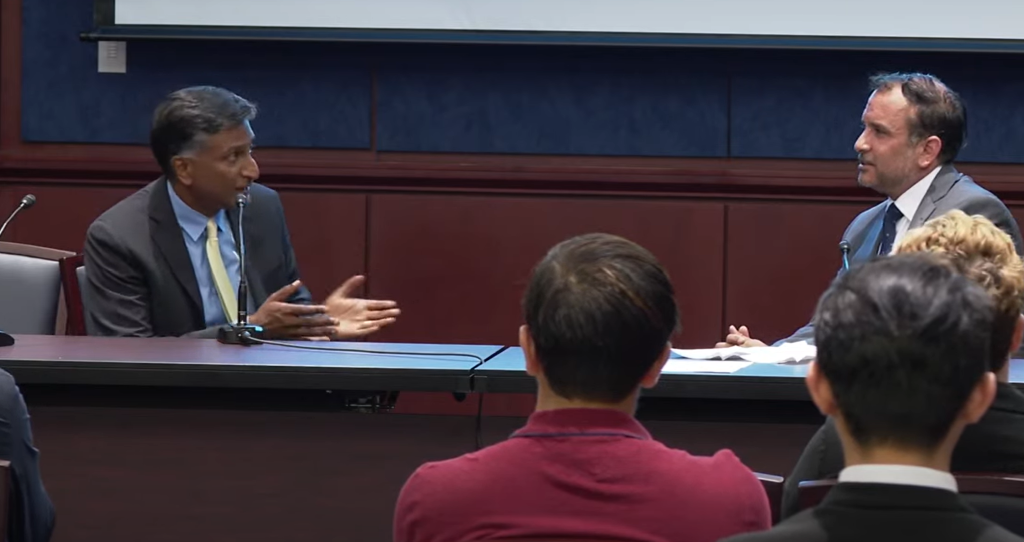Deepfakes Pose National Security Threat, Private Sector Tackles Issue
Content manipulation can include misinformation from authoritarian governments.
Teralyn Whipple

WASHINGTON, July 20, 2022 – Content manipulation techniques known as deepfakes are concerning policy makers and forcing the public and private sectors to work together to tackle the problem, a Center for Democracy and Technology event heard on Wednesday.
A deepfake is a technical method of generating synthetic media in which a person’s likeness is inserted into a photograph or video in such a way that creates the illusion that they were actually there. Policymakers are concerned that deepfakes could pose a threat to the country’s national security as the technology is being increasingly offered to the general population.
Deepfake concerns that policymakers have identified, said participants at Wednesday’s event, include misinformation from authoritarian governments, faked compromising and abusive images, and illegal profiting from faked celebrity content.
“We should not and cannot have our guard down in the cyberspace,” said Representative John Katko, R-NY, ranking member of House Committee on homeland security.
Adobe pitches technology to identify deepfakes
Software company Adobe released an open-source toolkit to counter deepfake concerns earlier this month, said Dana Rao, executive vice president of Adobe. The companies’ Content Credentials feature is a technology developed over three years that tracks changes made to images, videos, and audio recordings.
Content Credentials is now an opt-in feature in the company’s photo editing software Photoshop that it says will help establish credibility for creators by adding “robust, tamper-evident provenance data about how a piece of content was produced, edited, and published,” read the announcement.
Adobe’s Connect Authenticity Initiative project is dedicated to addressing problems establishing trust after the damage caused by deepfakes. “Once we stop believing in true things, I don’t know how we are going to be able to function in society,” said Rao. “We have to believe in something.”
As part of its initiative, Adobe is working with the public sector in supporting the Deepfake Task Force Act, which was introduced in August of 2021. If adopted, the bill would establish a National Deepfake and Digital task force comprised of members from the private sector, public sector, and academia to address disinformation.
For now, said Cailin Crockett, senior advisor to the White House Gender Policy Council, it is important to educate the public on the threat of disinformation.








